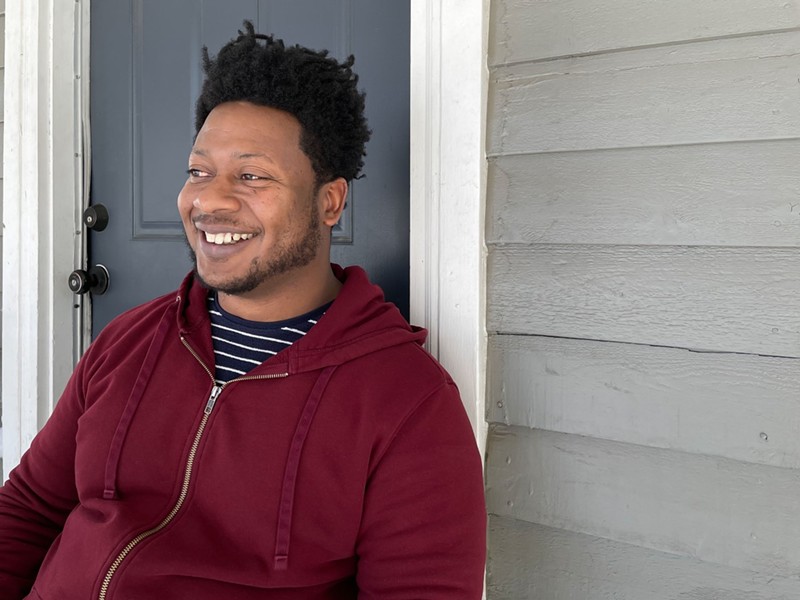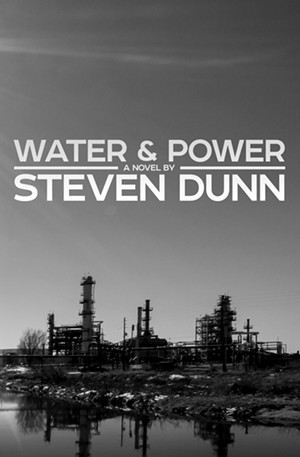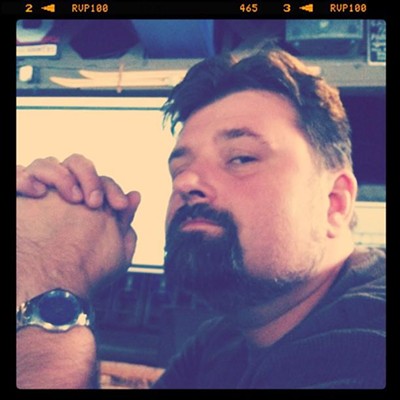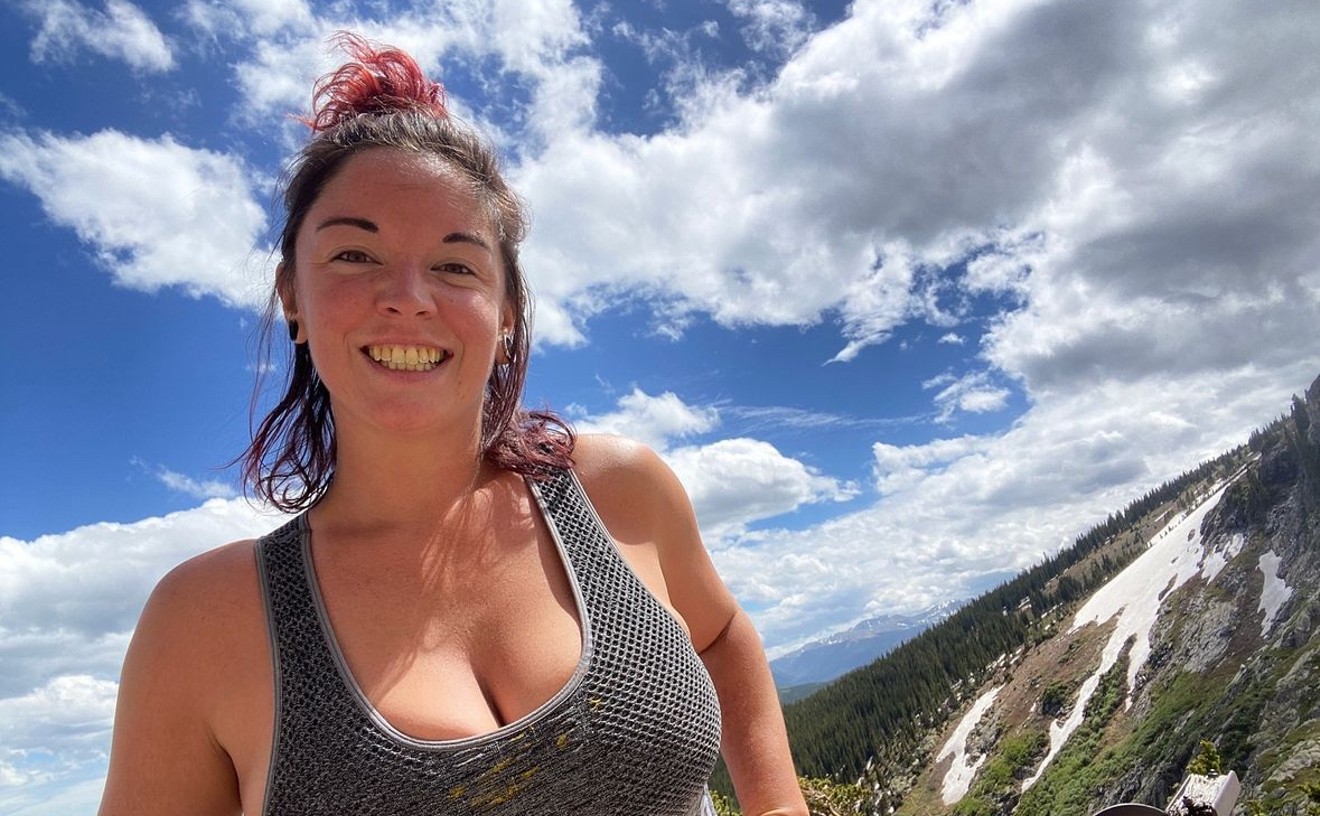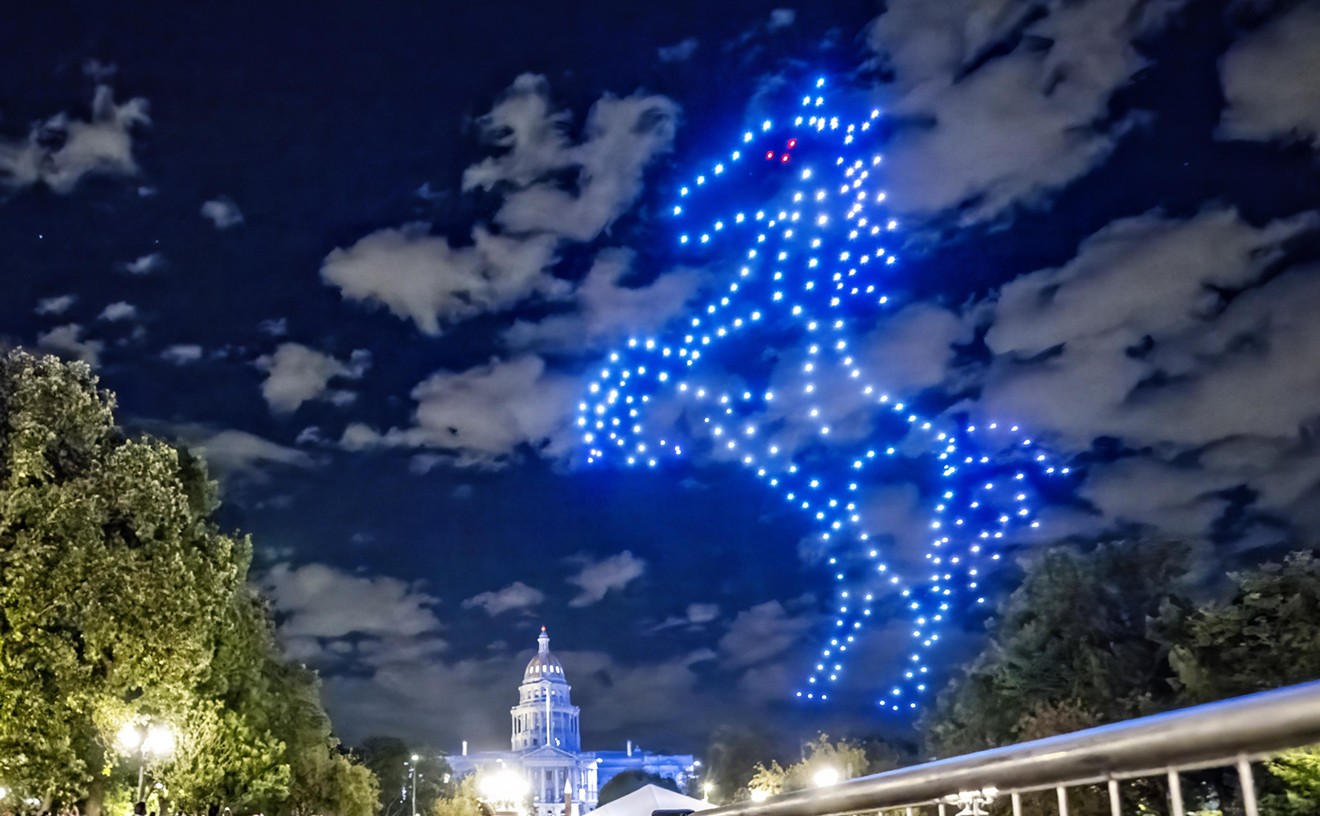Since 1985, the Whiting Award has recognized the best emerging writers in several categories. Past Fiction winners have included such luminaries as Stuart Dybek (1985), Kent Haruf (1986), David Foster Wallace (1987), Jonathan Franzen (1988), Colson Whitehead (2000) and Ben Percy (2008). In other words: If you want to see who’s going to be shaping the literary world in the coming couple of decades or more, it's worth checking out who wins the Whiting. Now you can add to that list Denver’s own Steven Dunn.
Dunn has been an active part of the local lit scene for some years, but especially since his debut collection Potted Meat was a finalist for the Colorado Book Award. (That book was also made into an award-winning short film called "The Usual Route.") His novel water & power was widely acclaimed, and he’s garnered his share of attention from other competitions, including making the shortlist for Granta’s list of Best Young American Novelists.
And now he's won the Whiting, which earns him not only recognition but a cool $50,000. We caught up with Dunn over email to talk about his writing, his career and winning the award — everything short of asking what he’ll do with the fifty large.
So let's get the details on winning a prestigious award like the Whiting: How did it come about? How were you contacted, and what was that moment like, learning for the first time that you'd received that recognition?
I have no idea how it came about other than someone nominated me, and I’ll probably never know who did. It’s all confidential. And I ain’t even know what a Whiting Award was — the only reference I had was that I saw it in [The Residue Years author] Mitchell S. Jackson’s bio somewhere. So when the award people called me from a New York number, I was like, “Who I know in New York tryna play a joke on me? Which one of my cousins is this?” And I don’t know if anybody reading this has seen Berry Gordy’s Last Dragon, where Bruce Leroy gets the glow when he fights Sho’nuff. But that’s what it felt/still feels like — like I got the glow in this bitch.
Take us back to how your writing career started. What got you into the written word?
Tara, my wife, got me into writing. I was a painter and illustrator all my life, until I had an art show at Mutiny Now in 2007, when I was 26 years old. At the opening, Tara asked me if I realized how many words I had on my paintings, that maybe something else was there. And that’s when I started writing, even though I’d never been a big reader or ever considered writing. It took me a year to prepare for that show, and something didn’t feel right during the process, and I think it was because I was leaning towards writing without knowing.
Your first book, Potted Meat, was a finalist for the Colorado Book Award, and your latest, water & power, was extremely well received. What in those two works inspired you to bring them into the world? What was it that drove your process there?
For Potted Meat, I wanted to write about Black folks in West Virginia, because we’re often left out of the conversations about Appalachia. Even books and movies set in my county, like The Glass Castle and October Sky, leave Black folks out, and McDowell County is the second Blackest county in West Virginia. We even had an author in my hometown of Kimball (Population 500 and half Black), and her books and plays about WV rarely, if ever, centered Black people.
For water & power, man, I wanted to slow down all the automatic praise and hero worship, and look at how the military fucks up its own people as well as people abroad. I wanted to bring multiple voices in that usually aren’t represented much in military literature, like women, spouses, LGBTQ people and non-white people.
One of the great mysteries of writers is how we choose what we're tackling. What are you working on now? What draws you to that book as your next project?
I’m doing final edits now for a novel I wrote with Katie Jean Shinkle, who I met at the University of Denver. It’s about Black-ass joy and queer-ass joy! And I’m almost done with a book about Nas’s albums, which I’m collaborating on with a lot of my homies since kindergarten. It’s the funnest shit writing this book with my people — I feel like Kanye West, with how many people doing they thang in this book. Even some local writers are in here talking they shit: André O. Hoilette, Suzi Q. Smith, Bianca Mikhan and Manuel Aragon.
You're tight with the local lit scene. How does art and the city of Denver feed your work?
Seeing how many talented and generous people are working and playing here constantly makes me think of what else is possible through talent and generosity and play.
What in Denver most inspires you?
The Kasbah in Aurora, which sadly shut down during the pandemic. And Mr. A’s in Denver. These are two Black-ass places where I can get drunk, dance to Frankie Beverly & Maze, and eat a big-ass catfish sandwich. I’m inspired by all the Blackness and togetherness of these places. I’m also inspired by Writing in Color at Lighthouse, which was created by Suzi Q. Smith and is currently run by Manuel Aragon. I’ve met a lot of great writers and artists there that I ended up collaborating with on something.
Speaking of Writing in Color, let's talk about underrepresented voices. How do you feel that you fit into that paradigm? How do you think the market is doing overall in terms of rectifying the issues of privilege as it pertains to art?
I don’t know where I fit into that paradigm other than my voice is underrepresented, and sometimes even my non-conventional style of books is underrepresented. I don’t think the market is doing that great at being inclusive, but I think changes are slowly being made. It’s business as usual. Even the Colorado Book Awards are largely white, and have been since they started, as if a lot of POC in this state aren’t writing great books. We see that mess. Even I didn’t want to submit to the awards, because after looking up all the winners in every category since the ’90s, there were very few POC who won, especially in the Literary Fiction category. It doesn’t feel worth it to pay the hundred-something dollars to submit to an award that has a history and a present of not awarding/valuing people like you or your stories. A lot of lit festivals in the state, whether at colleges or not, are largely white or only white, even after a lot of these places sent out Black Lives Matter statements last year. I know what I named isn’t “the” market, but it’s our state market. I’d love to start another state book awards for authors and artists of color, and pay them something other than exposure when they win.
Local author Jon Bassoff mentioned on social media that Publisher's Weekly "declined to review" your books, and then you win the Whiting. The comparison says something about publishing today and the conflicting agendas at work. Is this just about the moral arc of the universe curving toward justice, or is there more to it?
Jon Bassoff is great. He shared a photo of a tweet from my publisher, Tarpaulin Sky, saying that Publisher’s Weekly declined to review my books. My publisher has tweeted before that PW never reviews books from POC on our press, but they often review books from white people on our press. I never cared about being reviewed by PW because, similar to the CO Book Awards, I thought it was a thing that valued only white people and their stories. But smarter people who know more than me says it’s a good thing to be reviewed by them.
The Whiting Award led to you being profiled in Paris Review. I'm not sure I even have a question here, other than to say holy shit, that's cool, and to maybe check in to see how surreal and amazing that feels.
It feels cool, and maybe surreal, but in the sense that I never cared about being published or profiled there for similar reasons I named above — which is also ignorant of me, because I’ve never read it, so I’m not sure who they usually publish, but my perception was that they didn’t publish POC or small press authors. A lot of the time my perceptions have been right when I've followed up. So, yeah, surreal in the sense of an accident and luck. But not surreal in the sense that I’ve longed for this thing my entire life and now it has finally happened.
Find out more at Steven Dunn's website.
[
{
"name": "Air - MediumRectangle - Inline Content - Mobile Display Size",
"component": "12017618",
"insertPoint": "2",
"requiredCountToDisplay": "2",
"watchElement": ".fdn-content-body",
"astAdList": [
{
"adType": "rectangle",
"displayTargets": "mobile"
}
]
},{
"name": "Editor Picks",
"component": "17242653",
"insertPoint": "4",
"requiredCountToDisplay": "1",
"watchElement": ".fdn-content-body",
"astAdList": [
{
"adType": "rectangle",
"displayTargets": "desktop|tablet"
},{
"adType": "rectangle",
"displayTargets": "desktop|tablet|mobile"
}
]
},{
"name": "Inline Links",
"component": "18838239",
"insertPoint": "8th",
"startingPoint": 8,
"requiredCountToDisplay": "7",
"maxInsertions": 25
},{
"name": "Air - MediumRectangle - Combo - Inline Content",
"component": "17261320",
"insertPoint": "8th",
"startingPoint": 8,
"requiredCountToDisplay": "7",
"maxInsertions": 25,
"watchElement": ".fdn-content-body",
"astAdList": [
{
"adType": "rectangle",
"displayTargets": "desktop|tablet"
},{
"adType": "rectangle",
"displayTargets": "desktop|tablet|mobile"
}
]
},{
"name": "Inline Links",
"component": "18838239",
"insertPoint": "8th",
"startingPoint": 12,
"requiredCountToDisplay": "11",
"maxInsertions": 25
},{
"name": "Air - Leaderboard Tower - Combo - Inline Content",
"component": "17261321",
"insertPoint": "8th",
"startingPoint": 12,
"requiredCountToDisplay": "11",
"maxInsertions": 25,
"watchElement": ".fdn-content-body",
"astAdList": [
{
"adType": "leaderboardInlineContent",
"displayTargets": "desktop|tablet"
},{
"adType": "tower",
"displayTargets": "mobile"
}
]
}
]

